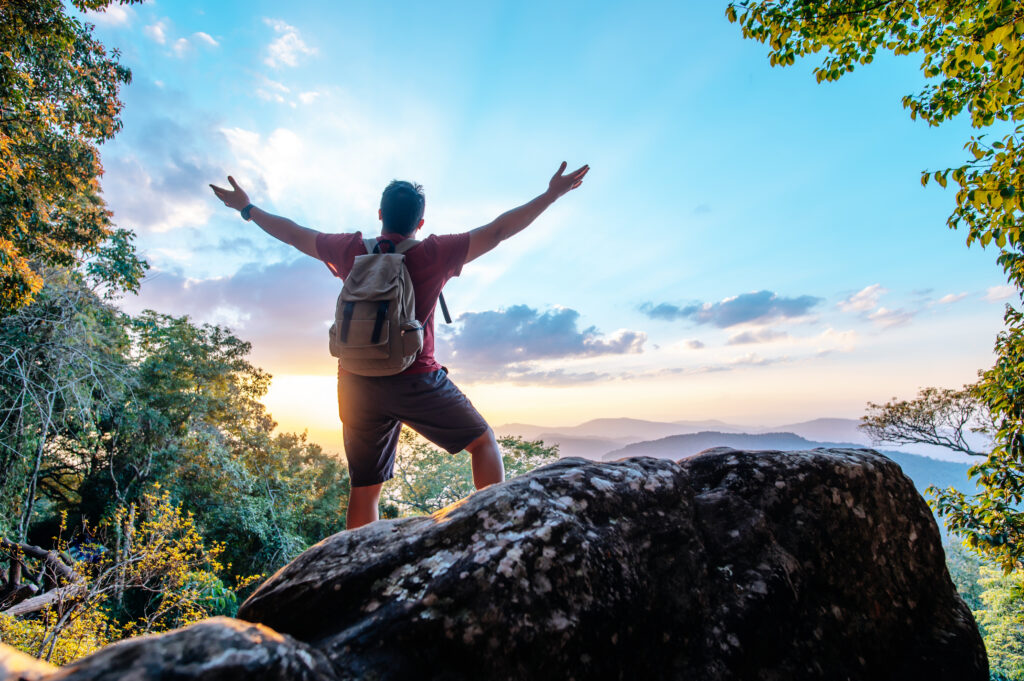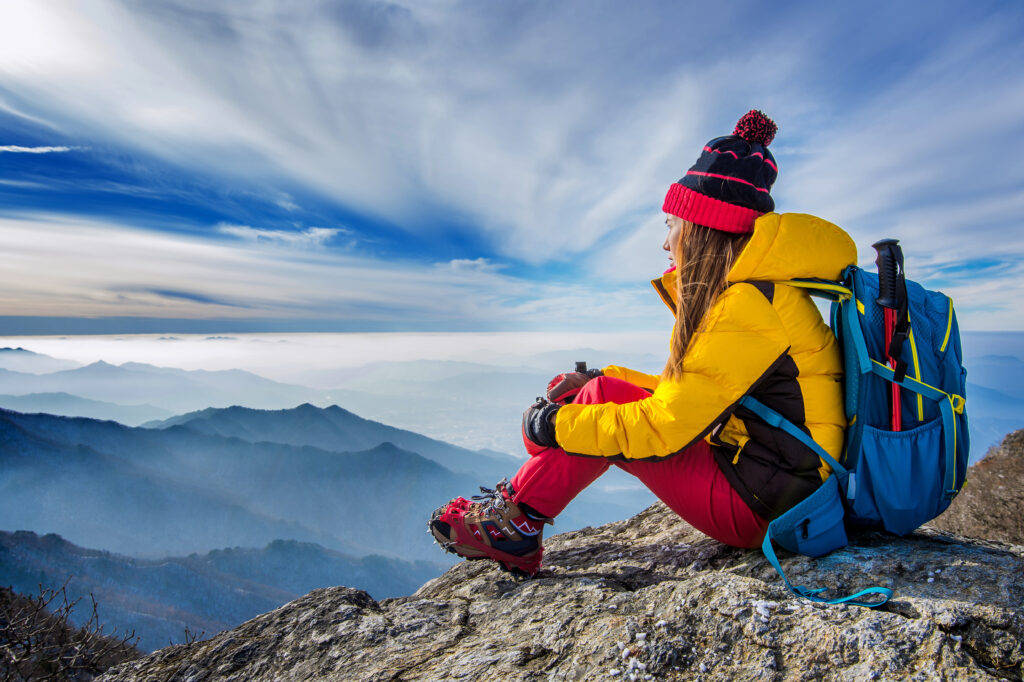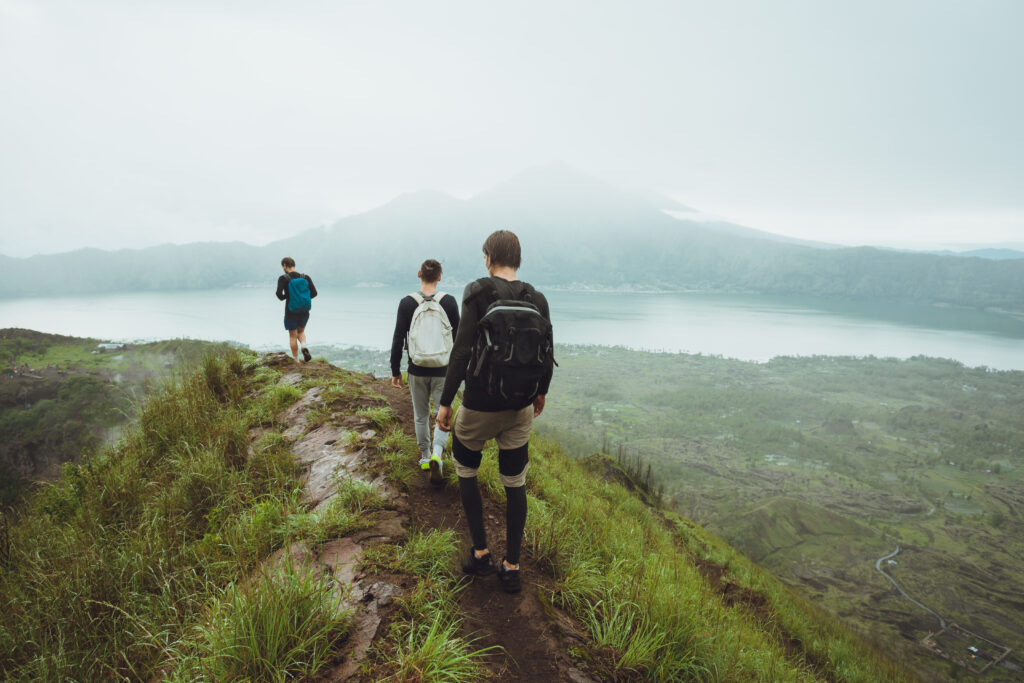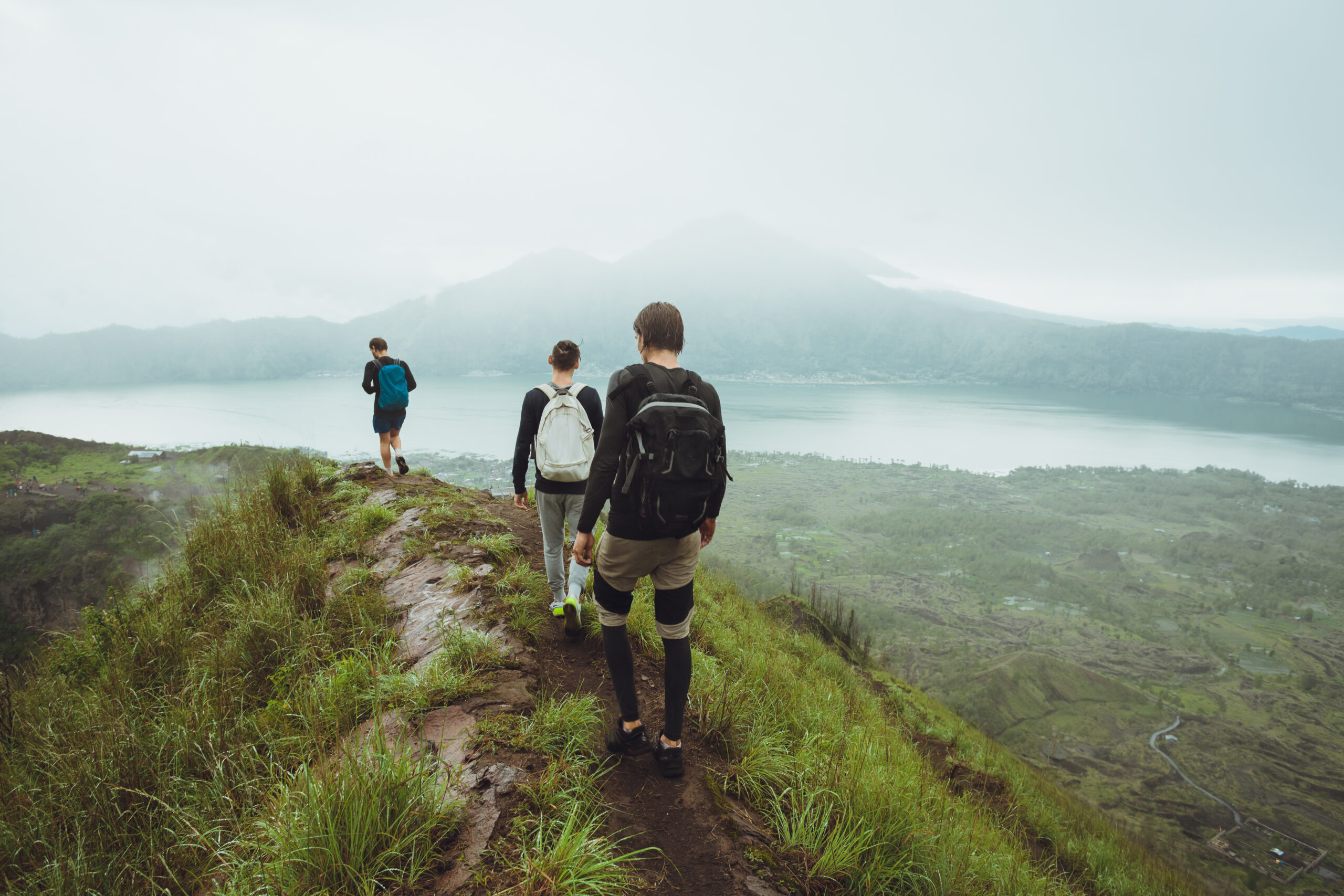Introduction
In today’s fast-paced world, where stress and sedentary lifestyles have become the norm, finding ways to improve our physical and mental well-being has never been more critical. Trekking, a form of outdoor adventure, offers a refreshing escape from the daily grind while providing a plethora of health benefits. Lace up your boots, breathe in the fresh air, and embark on a journey to discover how trekking benefits can contribute to your overall health.

Table of Contents
The Call of the Wilderness: Why Trekking?
Trekking is not just a physical activity; it’s an opportunity to reconnect with nature and disconnect from the demands of modern life. The allure of exploring uncharted trails, witnessing breathtaking landscapes, and challenging oneself is undeniable. When you step into the wilderness, you’re not just embarking on a physical journey; you’re embracing a holistic experience that rejuvenates the mind, body, and soul.
Nature’s Gym: Physical Fitness through Trekking
Every step taken during a trek engages various muscle groups, providing an effective full-body workout. Uphill climbs build lower body strength, while navigating rocky terrains enhances balance and stability. The uneven ground forces your muscles to adapt, leading to improved muscle tone and flexibility. Additionally, the cardiovascular benefits of sustained walking and elevation changes contribute to better heart health and weight management.
Mental Mountains: Cognitive Trekking Benefits
Trekking stimulates the mind as much as the body. The constantly changing surroundings and need for navigation keep the brain engaged, enhancing cognitive flexibility and problem-solving skills. As you navigate through different terrains and make decisions about the best path forward, your brain is challenged to process information quickly and make on-the-spot judgments. This mental engagement not only sharpens your cognitive abilities but also provides a welcome break from the digital screens that dominate our daily lives.

A Breath of Fresh Air: Benefits for Respiratory Health
Trekking often leads us to higher altitudes where the air is thinner. This natural shift challenges the respiratory system, promoting lung capacity and oxygenation of the body. As you ascend to greater heights, your body responds by producing more red blood cells to carry oxygen, thus improving your overall respiratory efficiency. This can lead to better lung function, increased stamina, and enhanced endurance, both during treks and in everyday activities.
Stress-Busting Trails: Trekking and Mental Well-being
Surrounded by nature’s beauty, trekking provides an ideal setting to reduce stress and anxiety. The tranquility of the outdoors and physical activity trigger the release of endorphins, our body’s natural stress relievers. As you immerse yourself in the sights and sounds of nature, the worries of the world begin to fade, and a sense of calm takes over. This meditative aspect of trekking allows you to escape the pressures of daily life and find solace in the simplicity of the natural world.
Building Stronger Bonds: Social and Emotional Connections
Trekking with friends or joining a group exposes you to a shared experience, fostering camaraderie and deepening social bonds. Sharing challenges and triumphs on the trail creates lasting memories and strengthens relationships. The shared goal of reaching a summit or completing a challenging trail creates a sense of unity and shared accomplishment. Moreover, the conversations and connections that bloom during treks can lead to lifelong friendships and a sense of belonging.

Balance and Coordination: The Hidden Advantages of Trekking
Uneven terrain and ever-changing landscapes demand constant adjustments in movement. This enhances proprioception, balance, and coordination over time. As you navigate through rocky paths, streams, and inclines, your body becomes attuned to subtle shifts in weight and balance. This heightened awareness extends beyond the trail, contributing to better posture, reduced risk of falls, and improved overall body control.
Exploring the Great Outdoors: Vitamin D and Sun Exposure
Trekking exposes you to sunlight, a natural source of vitamin D. This vital element plays a crucial role in maintaining strong bones, supporting immune system function, and regulating mood. The sun’s rays trigger the synthesis of vitamin D in your skin, promoting the absorption of calcium and phosphorus for strong bones and teeth. Adequate vitamin D levels are also associated with a reduced risk of chronic diseases and improved mental well-being.
Heart Health and Trekking
Brisk walking and uphill climbs during trekking contribute to improved cardiovascular health by lowering blood pressure, reducing cholesterol levels, and enhancing overall heart function. The sustained, moderate-intensity exercise of trekking encourages blood flow, strengthens the heart muscle, and improves circulation. Over time, this can lead to a decreased risk of heart disease, stroke, and other cardiovascular conditions.
Mindfulness in Every Step: Trekking and Stress Reduction
Mindfulness in Every Step: Trekking and Stress Reduction The rhythmic pattern of walking, combined with the serene surroundings, encourages mindfulness. Trekking allows you to be present in the moment and detach from everyday worries. As you focus on each step and breathe in the fresh air, your mind naturally enters a state of mindfulness. This mental clarity not only reduces stress but also enhances your ability to appreciate the beauty around you and find joy in simple pleasures.
Trail Nutrition: Eating Right While Trekking
Proper nutrition is vital for sustaining energy during treks. Pack lightweight, nutritious snacks and stay hydrated to optimize performance and recovery. Trail mix, energy bars, dried fruits, nuts, and water are essential companions on your trekking journey. Fueling your body with the right nutrients ensures that you have the energy to conquer challenging trails and make the most of your outdoor adventure.
A Natural Detox: Sweating It Out on the Trails
Trekking induces sweating, which aids in flushing out toxins from the body. Hydration and sweating work together to promote overall detoxification. As you hike, your body temperature rises, prompting sweat glands to eliminate waste products and regulate your internal temperature. Staying hydrated helps facilitate this process, ensuring that your body efficiently rids itself of harmful substances and supports optimal organ function.
Trekking Gear and Equipment: A Comprehensive Guide
Investing in suitable trekking gear ensures comfort and safety on the trails. From hiking boots to backpacks, understanding your equipment is crucial for an enjoyable experience. Quality footwear provides adequate support, prevents blisters, and protects your feet from rough terrain. A well-fitted backpack distributes weight evenly and accommodates essential items like water, snacks, a first aid kit, and navigation tools. Proper clothing, including moisture-wicking layers and weather-resistant outerwear, ensures that you stay comfortable and prepared for changing conditions.
Trekking Safety: Navigating Challenges and Precautions
Safety should always be a top priority. Learn about potential risks, carry a basic first aid kit, and be aware of weather conditions to make informed decisions. Before embarking on a trek, research the trail, assess your fitness level, and inform others about your plans. Familiarize yourself with the terrain and potential hazards, such as wildlife, steep drops, or slippery surfaces. Equipping yourself with the knowledge and tools to address unforeseen challenges ensures a safe and enjoyable trekking experience.
Choosing Your Trekking Trail: From Beginner to Advanced
Selecting the right trail depends on your fitness level and experience. Whether you’re a beginner or an experienced trekker, there’s a path out there that’s perfect for you. Start with well-marked, shorter trails if you’re new to trekking. As your confidence and skills grow, you can gradually tackle more challenging routes with varying elevations and terrains. Research different trails, consider factors such as distance, elevation gain, and difficulty, and choose a trail that aligns with your goals and abilities.
Conclusion (Trekking Benefits)
Trekking isn’t just a journey through the wilderness; it’s a journey toward improved physical fitness, mental clarity, and a deeper connection with nature. Embrace the trails, breathe in the crisp air, and let the benefits of trekking guide you on a path to holistic well-being.

FAQs (Trekking Benefits)
Q.1 Is trekking suitable for all fitness levels?
A. Trekking trails vary in difficulty, so there’s something for everyone. Start with beginner-friendly trails and gradually progress to more challenging routes as you build your strength and stamina.
Q.2 What should I pack for a trek?
A. Essential items include sturdy footwear, weather-appropriate clothing, a backpack with snacks and water, a map or GPS device, and a basic first aid kit. It’s also advisable to carry a fully charged mobile phone and inform someone about your trekking plans.
Q.3 How can I prevent altitude sickness during high-altitude treks?
A. Gradual acclimatization, proper hydration, and listening to your body are key. Ascend slowly, allowing your body to adjust to changing altitudes. If you experience symptoms of altitude sickness, such as headache, nausea, or dizziness, descend to lower elevations and seek medical attention if necessary.
Q.4 Are guided trekking tours recommended?
A. Guided tours provide experienced leaders, safety measures, and local insights, making them an excellent choice, especially for beginners or those unfamiliar with the area. Guides can enhance your trekking experience by sharing knowledge about the environment, culture, and history of the region.
Q.5 Can trekking help with weight loss?
A. Yes, trekking burns calories and contributes to weight loss when combined with a balanced diet. However, the primary focus should be on enjoying the experience and reaping its holistic benefits, rather than solely using it as a weight loss strategy.

